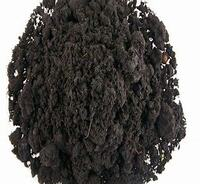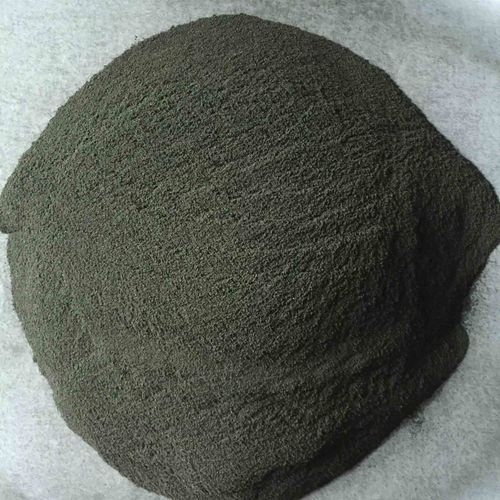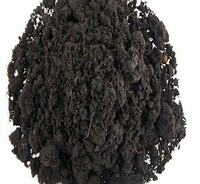1. Introduction
In a significant development reported just 48 hours ago, the U.S. Department of Commerce announced new export controls on high-purity titanium metal powder due to its strategic importance in aerospace and defense additive manufacturing. This move has intensified global scrutiny on titanium powder supply chains and pricing, particularly for grades used in 3D printing. As industries from medical implants to jet engines increasingly rely on titanium powder, understanding its variants, production methods, and cost structures has never been more critical.

2. Core Types of Titanium Powder and Their Characteristics
2.1 Pure Titanium Powder vs. Titanium Alloy Powder
Pure titanium powder, often referred to as commercially pure (CP) Ti powder, is valued for its excellent corrosion resistance and biocompatibility. It is commonly used in chemical processing equipment and medical devices. In contrast, titanium alloy powder—especially Ti6Al4V (also known as Ti64)—dominates high-performance applications. Ti6Al4V powder offers superior strength-to-density ratio, making it ideal for aerospace components and load-bearing orthopedic implants. The titanium powder price for Ti64 is typically 20–30% higher than pure titanium powder due to alloying elements and tighter processing controls.
2.2 Gas Atomized vs. HDH Titanium Powder
Gas atomized titanium powder features spherical morphology, essential for smooth powder flow in additive manufacturing. This spherical titanium powder ensures high packing density and consistent layer deposition in laser powder bed fusion (LPBF) systems. Conversely, HDH (Hydride-Dehydride) titanium powder is irregularly shaped, lower-cost, and suited for press-and-sinter applications or metal injection molding. While gas atomized powder commands a premium—often exceeding $300/kg for aerospace-grade Ti6Al4V—the HDH variant may cost as little as $80–$120/kg, making it attractive for non-critical structural parts.
3. Specialty Titanium-Based Powders and Their Niche Uses

3.1 Titanium Nitride and Titanium Carbide Powders
Titanium nitride powder (TiN) and titanium carbide powder (TiC) are ceramic compounds used for wear-resistant coatings, cutting tools, and cermets. Unlike ductile titanium metal powder, these are extremely hard and refractory. TiN imparts a gold-like finish and is widely used in decorative and functional coatings. TiC enhances hardness in tungsten carbide composites. Both are priced significantly lower than pure titanium powder but serve entirely different industrial functions.
3.2 Titanium Diboride and Boride Powders
Titanium diboride powder (TiB2) and titanium boride powder exhibit high thermal conductivity and exceptional resistance to molten metals. They are used in aluminum smelting crucibles and cathode materials. TiB2 powder price ranges from $50–$150/kg depending on purity, far below titanium 3D printing powder but critical in niche electrochemical applications.
4. Titanium Powder in Additive Manufacturing

Titanium powder for 3D printing—particularly spherical Ti6Al4V powder—is the backbone of aerospace and biomedical additive manufacturing. The 3D printing titanium powder price varies widely: standard-grade titanium 3D printing powder costs $250–$400/kg, while certified aerospace lots can exceed $600/kg. Key parameters include particle size distribution (typically 15–45 µm), oxygen content (<1000 ppm), and flowability. International titanium powder suppliers like AP&C, Carpenter Additive, and VSMPO-AVISMA dominate this high-barrier market.
5. Pricing and Procurement Considerations
Titanium powder price per kg is highly variable. Pure titanium powder may start at $70/kg for HDH industrial grade, while gas-atomized Ti64 powder for aerospace can reach $800/kg. Factors influencing titanium metal powder price include purity, morphology, certification (e.g., ASTM F3049), and volume. Buyers seeking to buy titanium powder should verify supplier credentials, especially given recent export restrictions. Reputable titanium powder suppliers provide full traceability and powder characterization data.
6. Titanium Powder in Context: Comparison with Molybdenum and Tungsten Powders
While titanium powder excels in lightweight, high-strength applications, molybdenum powder and tungsten powder serve high-temperature niches. Molybdenum metal powder (moly powder) is used in furnace components and electronics, with molybdenum disulfide powder (MoS2 powder) serving as a dry lubricant. Tungsten powder, with its extreme density (19.25 g/cm³), is essential for radiation shielding and kinetic penetrators. Tungsten carbide powder price per kg often exceeds titanium powder due to hardness and wear resistance. Global Tungsten & Powders Corporation and other tungsten powder suppliers cater to mining and tooling sectors, highlighting how material choice depends on application-specific demands—not just cost.
7. Safety, Handling, and Emerging Trends
Titanium dust is flammable and can be pyrophoric in fine nanopowder form, requiring inert atmosphere handling. Burnt titanium powder coat residues must be cleaned carefully to avoid contamination. Meanwhile, TiO2 nano powder (titanium dioxide) is unrelated to structural titanium powder—it’s a white pigment used in sunscreens and food, not for metal fabrication. Innovations like titanium-coated diamond powder and TiH2 powder (a foaming agent) show the material’s versatility, but buyers must distinguish between functional metal powders and chemical compounds.
8. Conclusion
Selecting the right titanium powder requires balancing performance needs, budget, and regulatory compliance. From cost-effective HDH powder for sintering to premium spherical Ti6Al4V powder for life-critical 3D-printed implants, each variant serves a distinct role. As additive manufacturing expands and geopolitical factors influence titanium powder for sale globally, informed procurement from trusted titanium powder suppliers will remain essential for industrial competitiveness.
Our Website founded on October 17, 2012, is a high-tech enterprise committed to the research and development, production, processing, sales and technical services of ceramic relative materials such as 7. Our products includes but not limited to Boron Carbide Ceramic Products, Boron Nitride Ceramic Products, Silicon Carbide Ceramic Products, Silicon Nitride Ceramic Products, Zirconium Dioxide Ceramic Products, etc. If you are interested, please feel free to contact us.
